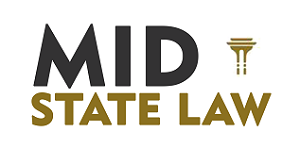Even if you don’t find yourself in legal trouble, advocating for yourself in everyday situations is difficult. Criminal defense lawyers are experts in advocating for their clients. Educate yourself on your legal and ethical rights in common situations like interactions with police, bosses, landlords, and government agencies and what you are and aren’t required to do in these encounters. Knowledge gives you the power to stand your ground.
Talk without legal counsel
If you are being accused of wrongdoing or serious disputes arise, avoid explaining yourself without guidance from a qualified legal advisor. Anything you say is used against you. Politely invoke your right to counsel and remain silent until you have strategic advice.
Document everything
The records time you may need to advocate for fair treatment. Save emails, take notes of conversations, photograph evidence, and collect documentation. Create a paper trail to support your case. Use apps to record interactions when legal. Solid documentation strengthens your position.
Facing criminal charges in Decatur? A Criminal Defense Attorney Decatur can protect your rights and fight for the best possible outcome. Don’t navigate the legal system alone. Contact a Decatur criminal defense attorney today.
Know what you want
Before advocating for yourself, get very clear on your desired outcome. What specific result do you want to ask for? Articulate your “ask” up front whether negotiating a job offer or resolving a dispute with a vendor, knowing your goal is key.
Research rules and regulations
They are copy of all official contracts, handbooks, laws, and decisions applicable to the situation. Look for clauses that support your position. Reference these to strengthen your case logically and ethically. Citing relevant regulations shows you’ve done your homework.
Remain calm
It’s natural to get upset when you feel wronged, but anger rarely persuades. Breathe and speak calmly to retain credibility. Stay focused on achieving your goal. If needed, take a break and revisit the issue later when emotions have settled.
Craft your best argument
Build a compelling case by thinking like an experienced defence lawyer in brampton. Write out the strongest, most rational arguments for your position including supporting evidence. Practice presenting these effectively. Logical arguments are more persuasive than rants.
Propose a reasonable solution
Be prepared to suggest an action plan or compromise. Don’t just present grievances. Recommend an outcome that reasonably resolves the issue and addresses the key concerns of both parties. Constructive solutions generate goodwill.
Follow official procedures
The institutions have formal processes to request changes or file grievances. Review these procedures and give them a good faith try first. Following official protocols shows reasonableness. Make sure to document each step.
Know when to escalate
If you exhaust appropriate channels without a just resolution, don’t be afraid to politely escalate. Calmly inform whomever you are dealing with that you will need to involve higher authorities or third parties if the matter remains unresolved. Following tips that skilled criminal defense lawyers use in advocating for clients you self-advocate more effectively in everyday situations. Pick your battles wisely, arm yourself with knowledge, and fight constructively for the outcomes you deserve.





